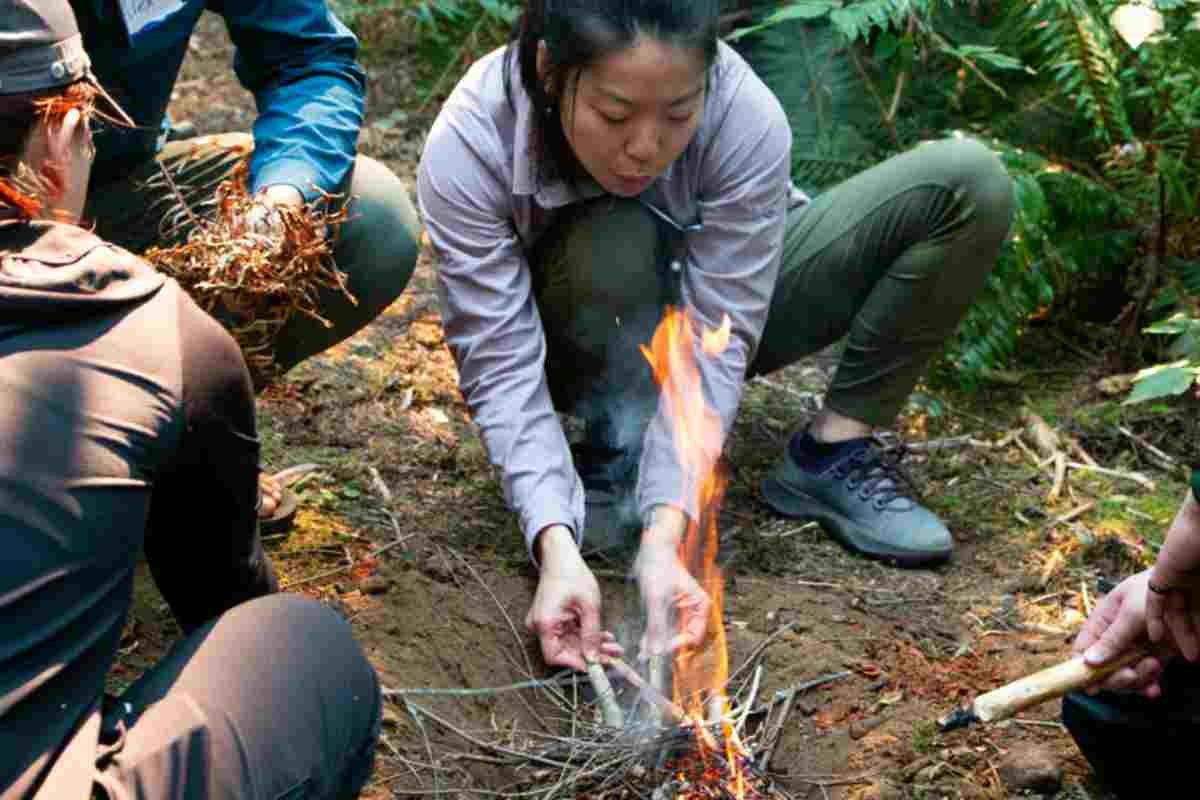Basic Survival Skills for Staying Alive

Whether you’re just starting to realize that all the luxuries we have around us won’t last forever or you’ve been practicing survivalism for the past two decades, everybody should be equipped with at least these 5 basic survival skills. It may not seem important now, but when push comes to shove, you may end up relying on nothing but your wits and a few choice items around you to stay alive. Will you be able to do what it takes to fend off starvation, cold, wind, or dehydration?
1. Food and Water Rationing
When you receive a survival kit and it claims to have food for “72 hours” or “1 week,” etc., what does that really mean? Does that mean you get 3 square meals a day out of it? Most likely not, as you’ll probably have to ration the food and water to last that long. Learn how to procure food and water from the environment around you, whether you’re in the wilderness or stuck in an urban survival situation.
2. Signaling
Imagine you’re hiking out in the mountains and you slip down and break your foot. It’s too painful to walk, and there’s nobody around for miles. What happens then? Your supplies will only last a few days, by which time people will start to look for you, but how can they even find you in such a vast wilderness? Signaling helps people locate your position so that they can send help. Common ways to signal are by fire, mirrors, CB radio, or cell phone.
3. Fire Building
Fire is the most versatile and useful tool you can have in the wilderness. You can use a fire to keep you warm, ward off wild animals, cook food, and dry out clothing. Even if your clothes aren’t appropriate for your location (sandals in the snow), a fire at least lets you forget about that for a while until you can figure out how you will survive. Matches and lighters are the best ways to start fires, but you should also be familiar with other methods in case those aren’t available.
4. First Aid Knowledge
No matter how well prepared you are, a single infection or certain type of injury can completely do you in. First aid kits are small, and compact, and should have gauze, antiseptic, rubbing alcohol, and bug spray to account for minor injuries. Larger injuries may be outside your realm of experience, but it’s always good knowledge to know how to set a broken bone or treat a fairly large burn. The last thing you want to do is panic, and a little bit of preparation for such situations can help keep you calm so you can figure out a way to get out of your situation.
5. Shelter
If you get stranded on a tropical island, you won’t have to worry about shelter too much. But what if you’re in a place where the temperature drops below 60 degrees Fahrenheit at night? Or if it’s snowing, or raining? The shelter is one of your most important survival tools.
Also Read: Which Inventions have Saved the Most Lives?